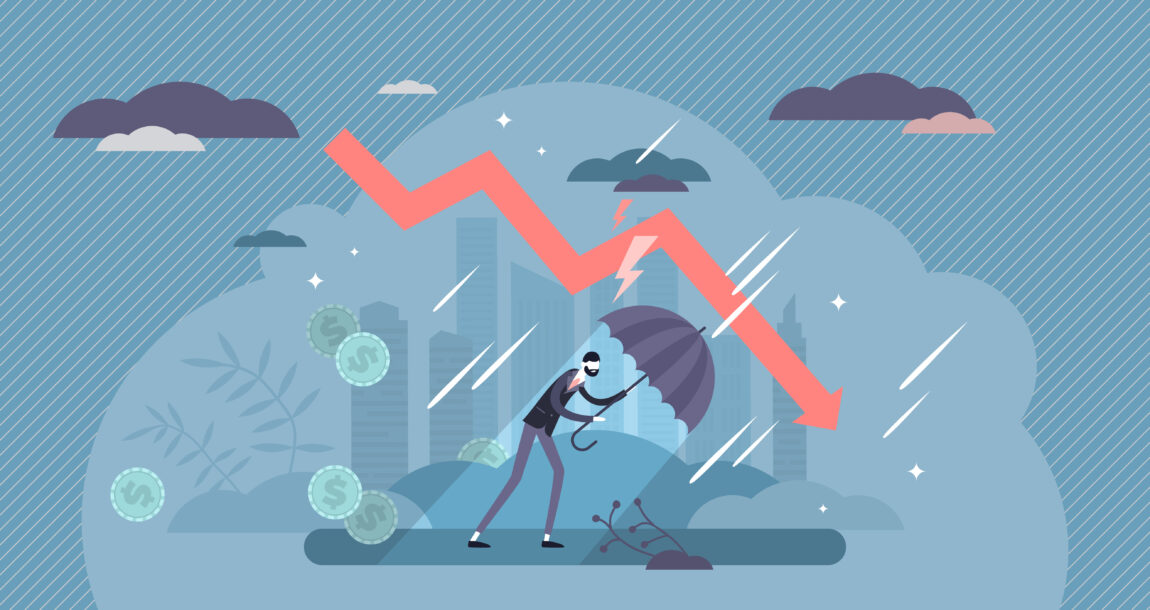Recession fears grow as economic growth slows

The U.S. economy grew at a paltry 1.1% annual rate in the first three months of this year, signaling a cooling trend that will likely lead to a recession later in 2023, analysts said.
The Gross Domestic Product fell from a 2.6% in last three months of 2022 as consumers were burdened with the effects of inflation, higher interest rates, and a looming banking crisis.
GDP is a measure of the value of all goods and services produced in the country from pepper plants to jet airliners and everything in between. The measure grew at an average 2.2% for 10 years before the pandemic hit.
Consumer spending, which is a big factor in the growth number, was actually pretty strong at the beginning of the year and accounted for bulk of 1.1% increase. But the Commerce Department said it was offset by business cutbacks and a drop in housing investment. Economists had been predicting a 1.9% first quarter GDP.
Below consensus forecast
“It was somewhat below the consensus forecast, but the underlying details were far stronger,” said Eric Winograd, senior economist at AllianceBernstein. “As always with GDP, the first print is unreliable and likely to be revised significantly in the coming weeks, so it’s best to take the report with several grains of salt.”
Winograd noted that personal consumption rose at a 3.7% annualized rate outweighing a very large decline in inventories.
“Personal consumption is a better gauge of the underlying health of the economy given that consumption represents something like 65% of economic activity,” he said. “I like to look at final sales to domestic producers as ‘core’ GDP, and that figure rose by a trend-like 2.9% annualized in the quarter.”
Consumers carrying the load
Consumers have been carrying the load in economic growth, with continued spending despite rising prices, the government figures showed. The labor market remains strong along with wages, boosting the consumers’ ability to spend a little more.
Nevertheless, Winograd said the Fed was likely poised to boost interest rates another quarter point next week and will likely call for more increases through the summer.
A persistent source of weakness has been in the residential housing sector which continues to slide.
”With housing activity slowing in the wake of surging mortgage rates, residential investment slid modestly in the first quarter after sharper declines late last year,” Winograd said. “That pattern emphasizes the sensitivity of the residential investment sector to mortgage rates—with rates moving lower in the first quarter. This will be a key channel to monitor as we assess the impact of regional banking stress in the coming weeks and months.”
Access to capital is drying up, though, as banks are relaxing lending amid growing concerns over the strength of the sector in the wake the collapse of Silicon Valley Bank and a teetering First Republic Bank. Small businesses, especially, are likely to be impacted most from the lending pullback, curtailing expansion and hiring plans.
Some silver linings
Still, some economists found silver linings the numbers release Thursday.
“While a slower growth rate can be concerning, it's important to remember that the economy is still expanding at a slower pace and there is the possibility of a recession,” said Lucas Noble, financial advisor at the Noble Financial Group. “It's worth noting, however, that recessions can benefit young people. During a recession, job opportunities for young people often increase as companies look to cut costs and hire younger workers at lower salaries. Additionally, there tends to be increased access to affordable education and training programs, which can provide a foundation for long-term financial stability and success.”
Doug Bailey is a journalist and freelance writer who lives outside of Boston. He can be reached at doug.bailey@innfeedback.com.
© Entire contents copyright 2023 by InsuranceNewsNet.com Inc. All rights reserved. No part of this article may be reprinted without the expressed written consent from InsuranceNewsNet.com.





‘Third rail’ heats up as Social Security reform talk increases
The insurance cyborg: The intersection of AI and the humans using it
Advisor News
- Americans increasingly worried about new tariffs, worsening inflation
- As tariffs roil market, separate ‘signal from the noise’
- Investors worried about outliving assets
- Essential insights a financial advisor needs to grow their practice
- Goldman Sachs survey identifies top threats to insurer investments
More Advisor NewsAnnuity News
- AM Best Comments on the Credit Ratings of Talcott Financial Group Ltd.’s Subsidiaries Following Announced Reinsurance Transaction With Japan Post Insurance Co., Ltd.
- Globe Life Inc. (NYSE: GL) is a Stock Spotlight on 4/1
- Sammons Financial Group “Goes Digital” in Annuity Transfers
- Somerset Reinsurance Announces the Appointment of Danish Iqbal as CEO
- Majesco Announces Participation in LIMRA 2025: Showcasing Cutting-Edge Innovations in Insurance Technology
More Annuity NewsHealth/Employee Benefits News
- Idaho Senate approves Medicaid budget
- John Oliver sued by health care boss
- Pharmacy bill passes House committee
- Lowering the cost of insurance in Colorado – a new analysis of the Peak Health Alliance
- University of Toronto Reports Findings in Alopecia [The Dermatologist Is Out? Assessment of Dermatologists In Ontario Accepting Ontario Health Insurance Plan (Ohip) Referrals for Hair Loss Evaluation]: Skin Diseases and Conditions – Alopecia
More Health/Employee Benefits NewsLife Insurance News
- Revised Proxy Soliciting Materials (Form DEFR14A)
- Proxy Statement (Form DEF 14A)
- Exemption Application under Investment Company Act (Form 40-APP/A)
- AM Best Affirms Credit Ratings of CMB Wing Lung Insurance Company Limited
- Council agrees to settlement for animal welfare division
More Life Insurance News